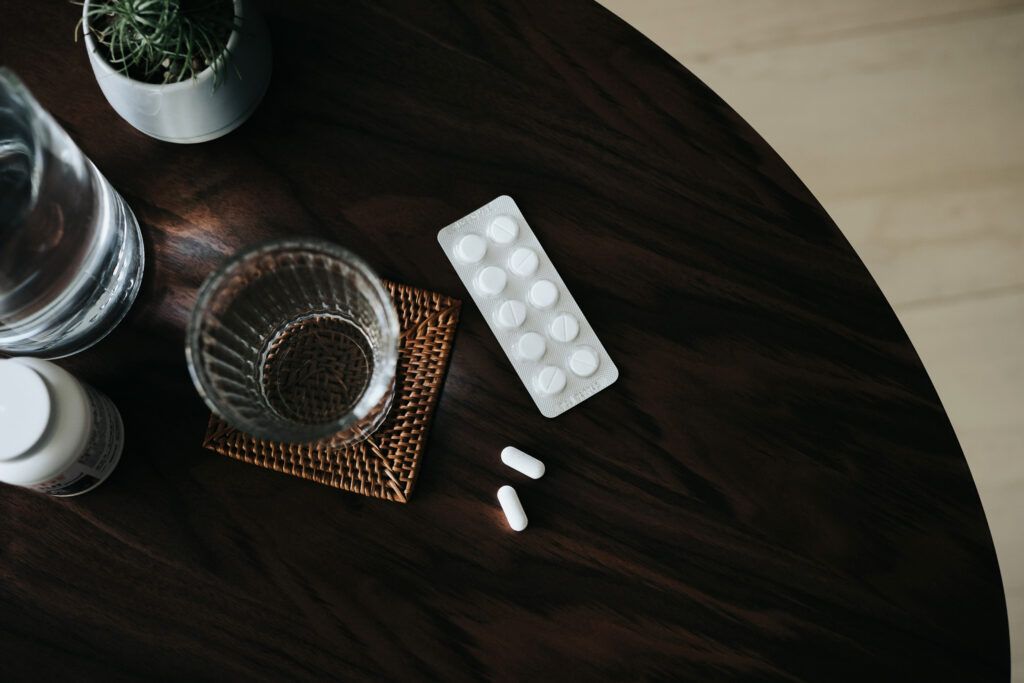People take vitamins and supplements to help manage certain conditions on their journey to better health.
Yet some vitamins and supplements may not benefit people who have specific health conditions, like high blood pressure (hypertension).
You may need to consider this when deciding which vitamins could benefit you. It’s also best to discuss them with a doctor or healthcare professional before taking any new vitamins or supplements.
About high blood pressure

About half of the adults in the United States have hypertension, and less than a quarter of them have the condition properly managed, according to the Centers for Disease Control and Prevention (CDC).
If you have hypertension, consider avoiding or being cautious about taking the following vitamins and supplements.
Vitamins D, E, and K
High vitamin D doses can lead to high blood pressure. Too much vitamin D in your system increases the levels of calcium, which can lead to a state of high calcium (hypercalcemia). One of the symptoms of hypercalcemia is high blood pressure.
On the other hand, a vitamin D deficiency is a risk factor for hypertension. If you have a deficiency in both vitamin D and K, it may also contribute to hypertension.
Talking with a doctor or healthcare professional about supplementing these vitamins is important for managing high blood pressure alongside any vitamin deficiency.
Additionally, vitamin E may effectively lower systolic blood pressure (SBP). SBP readings are the first numbers that display on a blood pressure reading and indicate the pressure your blood exerts against arterial walls when the heart beats.
If you are already taking medication for high blood pressure, vitamin E may lower your blood pressure even more. Your doctor might not have accounted for this when coming up with a treatment plan for your condition, so it is vital to discuss taking vitamin E with your healthcare team beforehand.
Sodium
Salt, also called sodium, can help balance electrolyte levels and fluids within your body.
But for some people, this mineral can increase blood pressure. According to 2019 research, there’s a link between salt consumption and an increase in blood pressure levels.
In fact, according to the CDC, about 90% of people in the United States who are over 2 years old consume too much salt, which increases their risk of hypertension and cardiovascular conditions.
Ephedra
Ephedra sinica, or ephedra, is an herb found in Asia. It is also called ma huang and is a supplement said to help increase energy levels and reduce weight.
Ephedra contains a chemical known as ephedrine alkaloid. Its effect is similar to that of adrenaline, which can raise your heart rate and blood pressure. In 2004, the Food and Drug Administration (FDA) banned ephedra in dietary supplements for this reason.
Arnica
Arnica comes from Arnica montana, a daisy-like flower that grows in Europe and Siberia. It is commonly used to treat bruises and pain and is applied to the skin as an ointment or cream.
A 2021 review of 25 studies found that Arnica montana remains effective for bruise reduction. Yet arnica can raise your heart rate and blood pressure when applied in large amounts or to broken skin, according to a 2017 study.
People rarely ingest the plant, but it is important to note that it can be fatal if it’s consumed in large, undiluted doses.
Licorice root
Licorice root comes from the licorice plant, or Glycyrrhiza glabra. People may use it to manage heartburn, coughing, acid reflux, and hot flashes.
One of the serious side effects of licorice root, which is a common cooking and herbal tea ingredient, is an increase in blood pressure and a decrease in potassium levels.
Panax ginseng
Panax ginseng, also known as red ginseng, Asian ginseng, or Korean ginseng, is a root that grows in China, Korea, and Siberia.
Experts believe that ginseng can raise blood pressure and increase heart rate.
Bitter orange
Bitter orange, or Citrus aurantium, is a fruit that people traditionally use for nausea, indigestion, constipation, and nasal congestion.
It’s also used to manage weight loss, anxiety, and premenstrual syndrome — but there’s little evidence of its effectiveness in treating these conditions.
Some experts consider bitter oranges as stimulants. But experts say that research is mixed on whether it can raise blood pressure. For this reason, you may still want to use it with caution and discuss its use with a healthcare professional first.
Yohimbe
Yohimbe supplements come from the bark of Pausinystalia yohimbe, a tree that grows in central Africa. Yohimbe traditionally treats erectile dysfunction, chest pain, and dizziness.
Yohimbe increases blood pressure in people with hypertension. For this reason, healthcare professionals may not recommend this for people with high blood pressure, according to a 2013 opinion paper from the European Food Safety Authority.
Guarana
Guarana (Paullinia cupana) is a plant native to the Amazon basin. It contains stimulants such as caffeine, theobromine, and theophylline, and it is rich in antioxidants.
Guarana is used for a range of conditions, from constipation to managing fatigue in those with cancer.
But, in high doses, guarana can lead to adverse effects, such as high blood pressure and confusion.
St. John’s wort
St. John’s wort, also known as Hypericum perforatum, is a herbal supplement used for relieving symptoms of menopause, depression, anxiety, and skin conditions like psoriasis and dermatitis.
The research on the effects of St. John’s wort on blood pressure is mixed.
A 2004 study concluded that the herbal supplement had no effect on the heart and blood pressure. But a 2015 study found that St. John’s wort causes serious side effects, such as panic attacks and spikes in blood pressure. More research is needed before any firm conclusions can be reached.
If you need help covering the cost of medications, the free Optum Perks Discount Card could help you save up to 80% on prescription drugs. Follow the links on drug names for savings on that medication, or search for a specific drug here.
